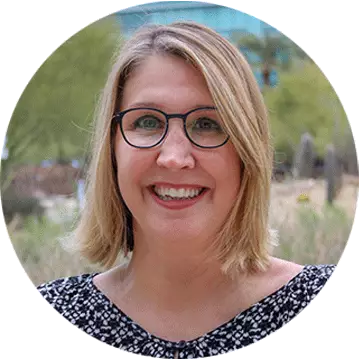How to personalize your tuition savings

Written by Laurie Davies

Reviewed by Chris Conway, Director of Financial Education Initiatives and Repayment Management

Your dream is to get a degree, and you’re ready to get started. But what’s it going to cost? And do the educational, military or life experiences you’ve had count for anything? It would be nice to know up front how you could save on your degree.
Enter, °®¶ą´«Ă˝â€™s Savings Explorer®ĚýłŮ´Ç´Ç±ô.
The innovative, elegant tool helps prospective students quickly and easily understand the savings opportunities that are relevant to them. Launched in November, Savings Explorer® presents information about:
- Scholarship opportunities
- Transfer credits
- Work and life experience
- National testing programs
- Alternative credit providers
- Military service
By answering a few simple questions, you can find out how much other students with relevant experience have saved.
How it works
It’s easy to get started with Savings Explorer® — just enter the degree you’re interested in, and the relevant cost-savings options will show up on the next screen. From there, choose the opportunities that apply to you.
“We’ve taken a lot of information that was cumbersome to navigate and created a guided place to present possible savings,” says the tool’s developer, °®¶ą´«Ă˝ Product Manager Ryan Bernal.Â
For example, let’s say a prospective student has several college courses under their belt as well as skills gained from work and life — both of which might count as credit toward a degree. In a matter of seconds, the tool reveals what other students saved, on average, with those selected opportunities. The student can then, with a few clicks, go right to information about transfer credits and credits for work and life experience. (Actual savings will depend on each student’s specific circumstances.)
It’s like driving down an easy-to-navigate main road with great signage onto side roads versus being dropped into an unfamiliar city without a map or street signs printed in your language.
Who it helps
A tool like this can be especially helpful for adult learners, who often enroll in school with work and life experience. (Think work credentials and certifications, previous college credit and even parenting experience.) At °®¶ą´«Ă˝, for example, the average age of new students is 38, and 80.9% are employed.
“At °®¶ą´«Ă˝, we understand our students are bringing their own life, work, education and training experiences to continue their educational journey with us,” says John Woods, PhD, provost and chief academic officer. “This understanding informed our creation of Savings Explorer® as a tool to support individuals in assessing, before they even enroll, the potential opportunities to save both time and money in order to quickly leverage their degrees and pursue their chosen career path.”
There are currently about 39 million adults in the U.S. with . Additionally, a  from National Student Clearinghouse Research Center found that during the pandemic, about 300,000 students who normally would have transferred, instead stopped their educational journey. For individuals who may have paused their educational plans, the Savings Explorer® tool offers a quick assessment to understand how they might be able to leverage their prior learning, work experience and financial circumstances.
How it helps
The goal of the Savings Explorer® tool is to give prospective students as much information up front regarding how much they can save on their degree.
°®¶ą´«Ă˝ offers generous credit transfer possibilities: Credit transfers can cover up to 75% of a bachelor’s degree. On average, °®¶ą´«Ă˝ students save $11,000 and eliminate one year from their undergraduate degree with eligible transfer credits and relevant work experience. Master's degree students can save up to nine credits and $6,800 on their degree.
Options in the Savings Explorer® tool go way beyond credit transfers. “Last year, we worked with our students to evaluate their experiences and other learning for potential college credits,” says Devin Andrews, vice president, Assessment and Evaluation. “The result was that students saved a total of $49 million in tuition and fees.”
Other cost-saving possibilities include:
- Scholarships — The University believes scholarships should be more widely accessible than they currently are, which is why it awards up to $3,000 to every new, qualifying student.
- Self-paced alternative credit providers — °®¶ą´«Ă˝ has teamed up with learning providers that help students earn credits toward their undergraduate degrees.
- National testing programs — Students can demonstrate existing knowledge by taking a test from one of the acceptable national testing programs such as CLEP, DSST and AP. Passing scores on these exams may result in awarded credits.
- Military credits — Members of all branches of the military can have their military experience assessed through the American Council on Education. °®¶ą´«Ă˝ honors these credit recommendations.
- Work and life experience — Certifications, trainings, licenses and even life skills all bring something to the educational table. At °®¶ą´«Ă˝, this translates to more than 200 opportunities to save.
The natural complement to tuition savings is, of course, tuition that remains the same over the course of a degree program. At °®¶ą´«Ă˝, a fixed tuition rate is part of the tuition guarantee, and it means students can find out exactly what a degree will cost and enjoy peace of mind that the rate won’t change while they’re enrolled in their program.
From fixed tuition rates to new ways to save, budgeting for a degree is firmly within the student’s hands. Learn more and try the Savings Explorer® here.

ABOUT THE AUTHOR
A journalist-turned-marketer, Laurie Davies has been writing since her high school advanced composition teacher told her she broke too many rules. She has worked with °®¶ą´«Ă˝ since 2017, and currently splits her time between blogging and serving as lead writer on the University’s Academic Annual Report. Previously, she has written marketing content for MADD, Kaiser Permanente, Massage Envy, UPS, and other national brands. She lives in the Phoenix area with her husband and son, who is the best story she’s ever written.Â

ABOUT THE REVIEWER
As Director of Financial Education Initiatives and Repayment Management, Chris Conway works with departments across the University to provide resources that allow students to make more informed financial decisions. She is also an adjunct faculty member for the Everyday Finance and Economics course at the University, and she chairs the National Council of Higher Education Resources College Access and Success Committee. Conway is committed to helping college students make the right financial decisions that prevent future collection activity.
This article has been vetted by °®¶ą´«Ă˝'s editorial advisory committee.Â
Read more about our editorial process.
Read more articles like this:


